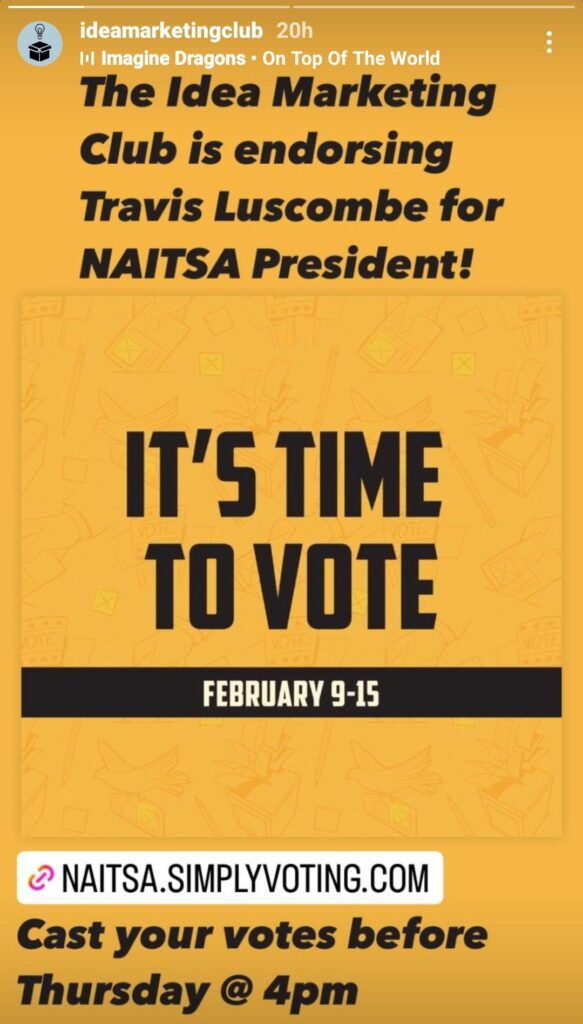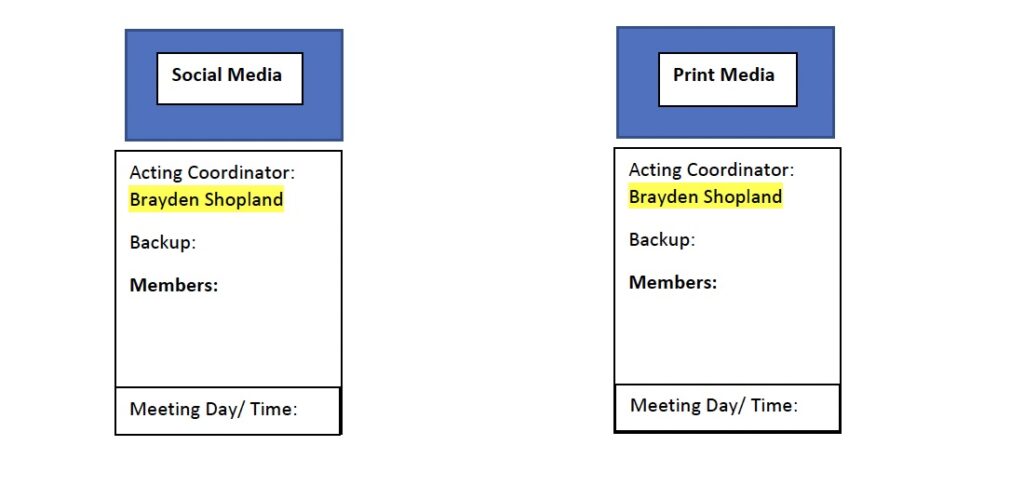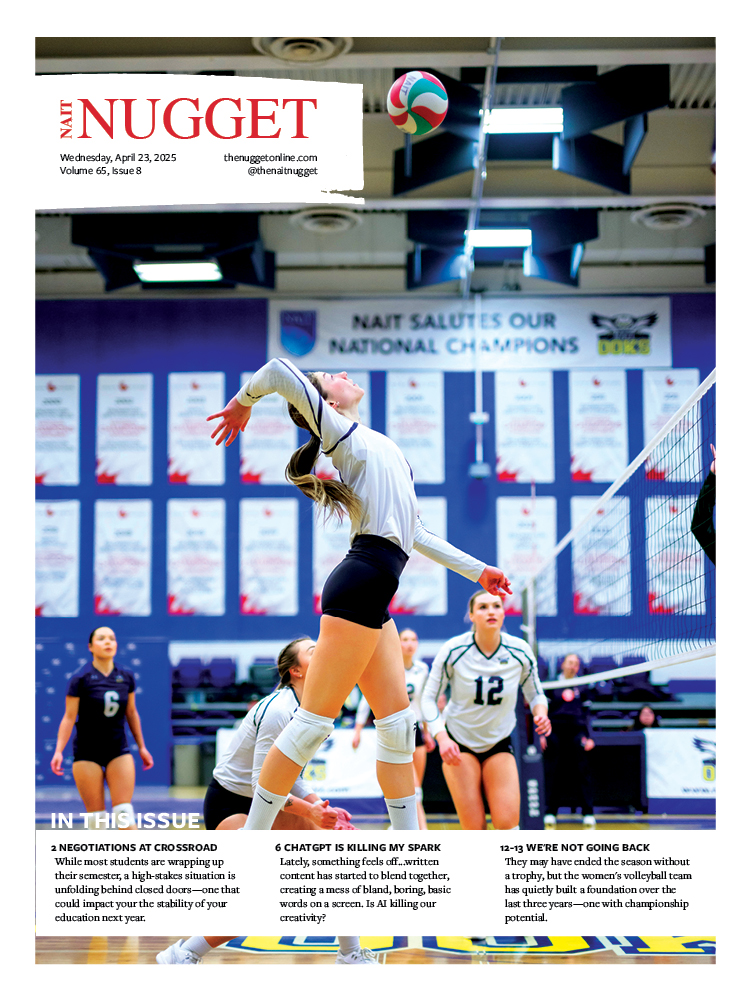Editor’s note: This article was originally published with a definition of slate campaigning from the CRO, not the NAITSA bylaws. To avoid any confusion, we have adjusted the quoted line to come directly from the bylaws. The previous definition was “prohibit[ion of] candidates from gaining an electoral advantage through mutual endorsements or sharing promotional materials,” which came from the CRO’s ruling email.
NAITSA’s governance bylaws are designed to protect the sanctity of an election; they give students a guide on how to behave and what to do (or not do) when running for Executive Council. Oftentimes, the wording of laws assumes that we behave in some fantasy binary, that our actions are either right or wrong. But the problem with us, as people, is that nothing is ever that clear. So somewhere between the lines on the pages of the bylaws lies an important conversation that needs to be had: do we follow the letter of the law, or the spirit?
In the most recent NAITSA Executive Council election, an anonymous source came forward to the Nugget to detail two candidates participating in what the source felt was slate campaigning defined in bylaw 7.14.8 as “2 or more candidates running for different positions, who gain an electoral advantage through one of the following actions: Publicly endorsing another candidate; and Sharing of election posters and promotional material. Presenting to potential voters together.”
While the candidates did not strictly share promotional materials, the complaint focused on potential unfair endorsements from the Idea Marketing Club, of which VP Internal-Elect Brayden Shopland was previously President. The club’s endorsement of President-Elect Travis Luscombe caused concern, given Shopland’s clear and continued involvement in the club despite stepping down as President. The endorsement took place on several platforms, including an email to all club members encouraging them to vote for Luscombe, and social media posts and stories announcing their endorsement of Luscombe.
There were several pieces of evidence submitted, including:
- a copy of Shopland’s online promotional article where he lists himself as President of the Idea Marketing Club, available via his publically accessible linkinbio on his Instagram account
- a roles document from the club’s teams channel listing Shopland as acting Social Media and Print Coordinator. The document was available to all teams channel members at the time of election and voting.
- a screenshot showing Shopland editing documents in the club’s teams channel during the election and his presence at their Clubs Showcase booth
- a copy of the email sent to all Idea Marketing Club members encouraging them to vote for Luscombe
- screenshots of the social media posts promoting the club’s endorsement of Travis Luscombe
- eyewitness accounts of Shopland working the booth at the February 13 Campus Clubs Showcase event

While a complaint was raised, it was eventually denied on the grounds of the wording of the slate campaigning bylaw. The reasoning from Chief Returning Officer and Marketing Instructor Raymond Bilodeau was that both candidates’ actions were not “clear evidence of mutual public endorsements or sharing of election posters and promotional materials between the two candidates.”
On the surface, and if I don’t put much thought into it, I agree with the reasoning behind the ruling. The bylaw is mainly concerned with shared promotional materials. By the bylaw’s definition, they did not share posters, pamphlets or campaign materials, so we can rule that point out.
However, when digging a touch deeper than the surface, their collaboration broke clear ethical boundaries. So sure, they did not violate the exact letter of the bylaw, but I’d argue they violated the spirit of the bylaw.
Let’s consider how executives do the bulk of their campaigning. There are some physical aspects of campaigning, like posters across campus and the article they write for the Nugget and NAITSA’s website. But many candidates also focus on in-person campaigning: walking around, talking to students and doing talks in classrooms. Then there’s the digital aspect of campaigning, like social media posts, LinkedIn shares and campaign websites.
So how do we track mutual endorsement and sharing promotional materials in our digital age? 7.14.7 of the bylaws states that candidates are allowed to use social media, but that “the use of social media to endorse or agree with another candidate may be considered slate campaigning.” Looking at both 7.14.7 and 7.14.8, there are some clear red flags with the Idea Marketing Club’s endorsement of Luscombe.

If a former President of a club non-verbally indicates the current president should tell a student who to vote for, would that not imply he’s actively involved in the club and therefore their decision to endorse a particular Presidential candidate? How about if a former President of a club is actively working on club documents or working the booth at events like the Campus Clubs Showcase? Doesn’t that show he has a stake in the club and the decisions they make?
Shopland was listed as social media coordinator in a club document during the elections, and the club’s endorsement was made on social media. How is that not a violation of bylaw 7.14.7 by its own wording? Wouldn’t the social media coordinator have to approve that endorsement before it went live on social media?
At the end of the day, the complaint was denied and Luscombe will be NAITSA’s President and Shopland will be NAITSA’s Vice President Internal next academic year. Nothing can be done about that now.
But their questionable choices and ethical violations going unpunished highlights a much bigger issue with the current slate campaigning bylaws: they are disconnected from the modern day student experience.
The harsh truth about the individual pieces of evidence obtained by the Nugget is that they are circumstantial. But evidence doesn’t exist in a vacuum, and it’s hard to look at the evidence and suggest nothing of note happened. If we want to get bogged down in the wording of an old bylaw, we are focusing on semantics and missing the forest for the trees. When voter turnout is low, and students are seemingly apathetic to these elections, cheating or manipulating the vote gets exaggerated. The cracks become canyons, and trust becomes completely eroded.
The bylaw either needs to be updated to better protect the electoral process, or we need to take into account the intentions of the bylaw. We’re in a digital age, and physical materials are becoming less and less important. Even more important, students exist in multiple different spaces on campus; they’re engaged with clubs, extra-curriculars, program events and so much more. How can we stick to the wording of a bylaw that ignores the multifaceted experience of a student?
When writing this article, I wondered about the authors of bylaws 7.14.7 and 7.14.8. Would they have considered this scenario? Did they intend to say that only if Candidate A posts their endorsement for Candidate B on their own personal channels that it’s slate campaigning? To be blunt, do we really expect candidates to be that obvious and only investigate when they are?
I don’t have an answer to the question about the letter or the spirit of the law. Law scholars can’t answer it either, though some have tried. Instead, I’ll leave you with some questions to consider. If the bylaws are disconnected from the student experience, how can we expect a fair and just ruling? Are the bylaws only there to prevent blatant infractions, while nuance is thrown to the wind? The student body deserves answers, but with our current bylaws, it doesn’t seem like they’ll be getting them anytime soon.
cover photo via NAITSA






